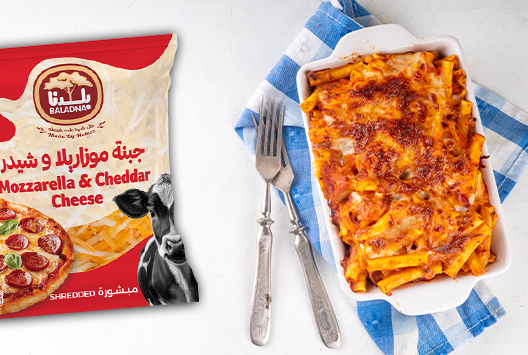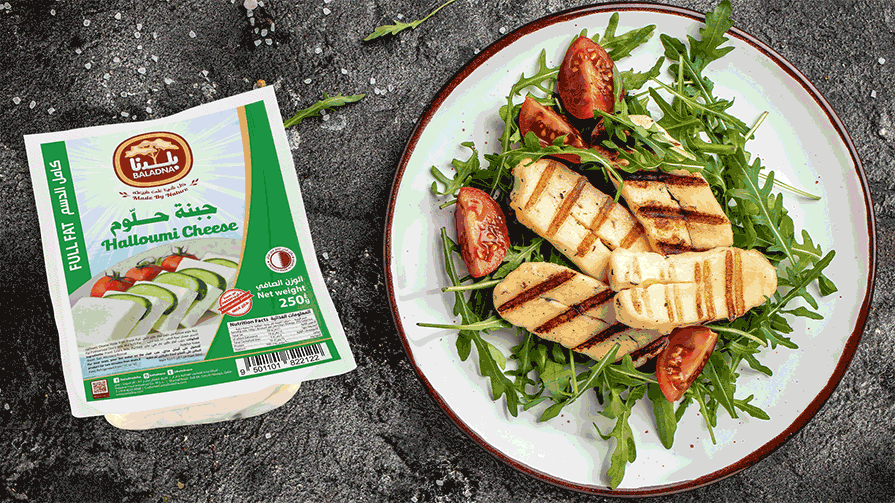
Baladna Cheese Varieties & Recipe Inspos
Whether you’re enjoying a casual snack or crafting a show-stopping centerpiece for your dining table, Baladna Cheese is sure to delight every palate. What truly sets Baladna Cheese apart is its authentic flavor, fresh texture, and diverse variety. Don’t just take our word for it — try it yourself and taste the difference!
Let’s talk about the exceptional nourishing flavor
Baladna cheese isn't just about great taste; it’s also a source of essential nutrients. Packed with protein, calcium, and phosphorus, our cheeses provide a nutritious boost for those aiming to maintain a balanced diet. They are rich in high-quality protein, delivering essential amino acids that support muscle repair and promote healthy skin, hair, and nails. Additionally, calcium and phosphorus work together to fortify your bones and teeth, contributing to overall skeletal health.
Having said that, it’s clear that choosing Baladna cheese means nurturing your body while indulging in delightful flavors.
Introducing the Baladna Cheese Collection
What truly sets Baladna cheese apart is its rich variety and distinct flavors. Here’s a taste of what we offer:
Halloumi: Known for its firm texture and savory, salty profile, Baladna Halloumi is perfect for grilling or pan-searing. Its signature squeaky bite and beautifully browned edges make it a great addition to salads, skewers, or even atop avocado toast.
Akawi: This semi-hard white cheese boasts a mild, salty flavor and smooth consistency. Traditionally featured in Middle Eastern sweets like knafeh, Baladna Akawi goes really well with fresh watermelon or other refreshing fruits.
Feta: A brined cheese with a crumbly texture and tangy, slightly salty flavor, Baladna Premium Feta adds a zesty touch to salads, sandwiches, and classic Mediterranean dishes such as spanakopita and moussaka.
Nabulsi: Made from pasteurized cow's milk, Nabulsi is a brined cheese with a subtly firm texture and a hint of nuttiness. It shines in both savory and sweet applications, whether used to stuff pastries or paired with honey and nuts.
What to make with each variety?
Feta x Salad: Create a vibrant Greek salad by combining Baladna Premium Feta Cheese with juicy tomatoes, crisp cucumbers, Kalamata olives, and fresh mint.
Halloumi x Breakfast: Elevate your morning meals by grilling slices of Baladna Halloumi and adding them to your scrambled eggs or on top of nutritious avocado toast.
Cheese Rolls x Appetizer: Make homemade cheese rolls using a blend of Baladna Halloumi and Akawi, perfect as appetizers for your Ramadan feasts and family gatherings.
Mozzarella x Eggplants: Hollow out eggplants and fill them with a mixture of ground meat, spices, and Baladna Shredded Mozzarella Cheese, then bake until bubbly and golden.
Now it’s time to explore the countless options within our cheese range. Browse our selection and find your favorites at supermarkets near you.






